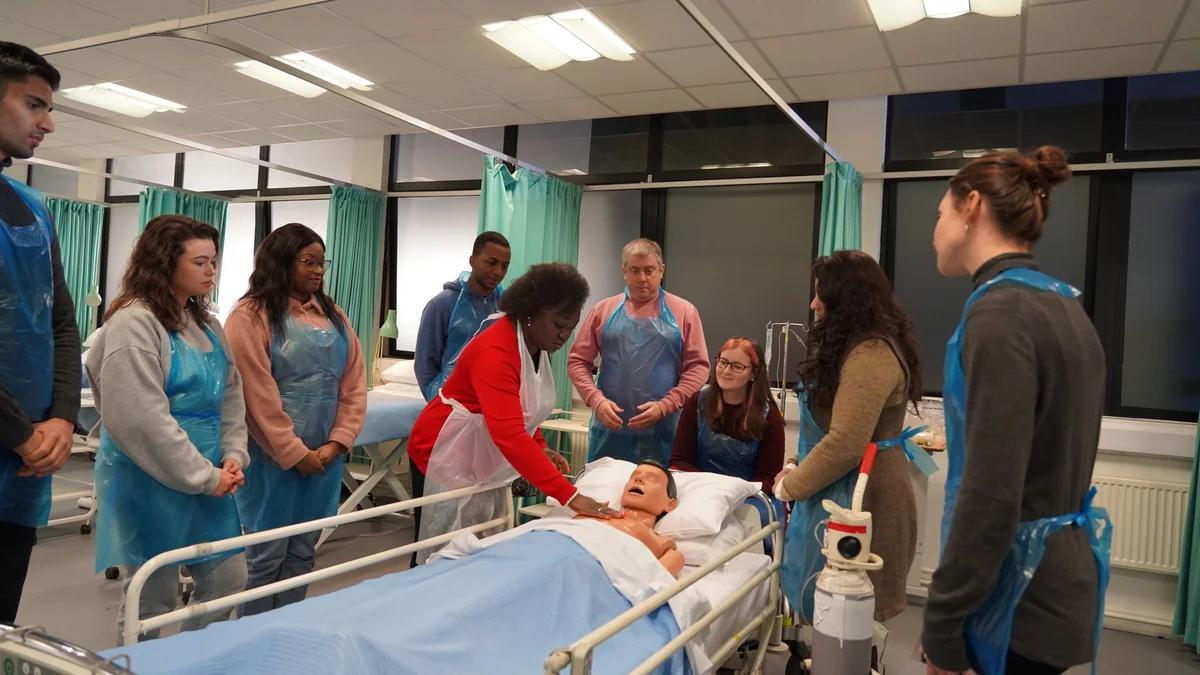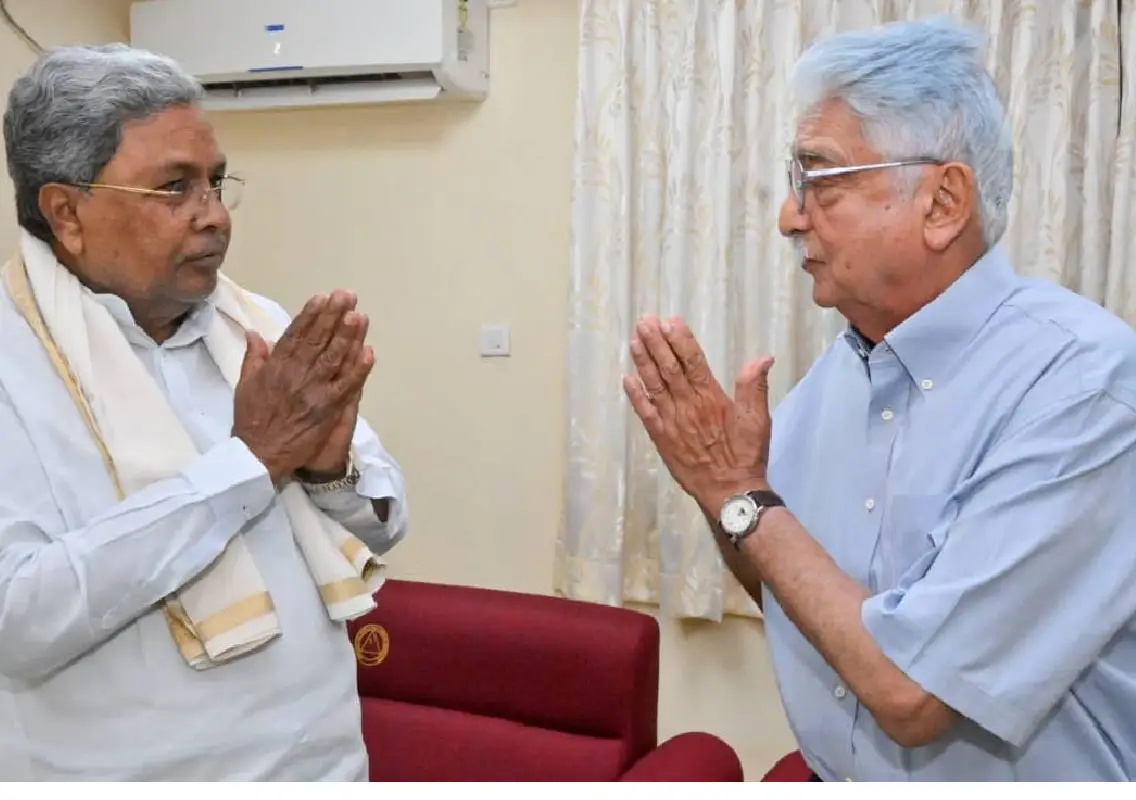“It’s all about experience” Further Education teachers share what it takes and why they love it
By Elizabeth Bennett
Copyright independent

In the modern world, many of us are working longer than ever. Research based on ONS Labour Market data found that there are almost one million more workers aged 65 and above since the millennium and the state pension is set to rise to 67 by 2028 and 68 by the late 2030s. Subsequently, having multiple careers is becoming increasingly popular. And after decades working in a specific industry, sharing the work-based knowledge you have gained via teaching in further education is one of the most rewarding career shifts you can make.
Further Education teaching (defined as any education for people aged 16 and over who aren’t studying for a degree) allows you to switch up your working days and harness the skills and experience you have developed, all while helping shape the next generation of workers in your field.
To find out more about the role, from what it takes to the best parts of the job, we spoke to Further Education teachers who have switched from doing their day job to teaching it…
John Ryan, 51, from Weston Super Mare, worked for more than a decade on site in the construction industry, mainly in bricklaying and supervising roles, before an opportunity to become a Further Education assessor changed his path in his thirties. Travelling nationally to assess the work of new bricklayers in order to sign off their NVQs (National Vocational Qualification), the college John was associated with then started offering him some teaching work.
With no prior teaching qualifications, John completed these alongside his assessing and teaching roles with the fees picked up by the teaching college. “I liked the idea of passing on my knowledge and giving young people the skills and confidence to progress in a trade,” he says. “Teaching in Further Education felt like a natural next step because it would allow me to combine my practical background with coaching and mentoring.” There were practical draws too. “On site in the construction industry you are self-employed so you do not get holidays or sick pay. The stability of income and regular paid holidays was a big draw of Further Education teaching,” he adds.
Since his first assessing role 18 years ago, John has worked between assessing, teaching and jobs back on the construction site and now, he currently teaches bricklaying and groundwork full-time at South Gloucestershire and Stroud College.
John’s extensive site and supervisory experience has proved to be hugely valuable when it comes to teaching his students there. “I can explain not just the ‘how’ but also the ‘why’ behind industry standards,” he explains. “Learners often respond well to hearing about real jobs, site challenges, and the professional behaviours that employers expect. It makes the lessons more relatable and credible,” he shares.
“For example, I can share stories of accidents when teaching site safety, or explain how a mistake of a few millimetres on a construction site can cost you time to rectify, which in turn will cost you money,” he says. “These hands-on, real world experiences make the theory relatable and show learners the real value of getting it right.”
Coral Aspinall, 52, who became a full-time Further Education teacher 12 years ago, agrees. “My experience allows me to put my teaching into context,” she says. Coral started out her engineering career at 16 as an apprentice in a local engineering company. Following a BSc in Engineering and Business Management, she worked for many years in the engineering industry before enrolling on a part-time PGDE (Professional Graduate Diploma in Education) course for teaching. She’s now the Engineering Programme Leader at the Stockport campus of the Trafford and Stockport College Group. Here, they offer qualifications such as Level 2 Performing Engineering Operations as well as engineering-focused Level 3 T Levels and Level 3 Btec Awards. They also offer Level 3 apprenticeships across engineering including Technical Support, Engineering Fitter and Maintenance Management.
“Because I’ve been an engineering apprentice myself, I understand what the student needs to be successful in terms of skills, knowledge and behaviour,” she explains. “I also have contacts in the wider engineering community and understand what an employer is looking for in an apprentice, and can also share insights in terms of how the sector is shifting and evolving to help support their progress.”
Working for an extensive period of time in a field before passing on that knowledge gives teachers maturity and empathy which can be hugely helpful for students, especially those facing complex life situations.
Beyond the practical techniques, a big part of John’s role is helping learners build confidence, teamwork, communication, and problem-solving skills that employers look for. “Many of my learners have different challenges, so they value teachers who are approachable, who believe in them, and who prepare them for real opportunities in work or further study,” he says. For John, his previous work experience has allowed him to do this. “On site, I worked with people facing all sorts of pressures, from work to life issues, which taught me to be patient and supportive,” he explains.
Coral has had a similar experience. “I see my role as more than imparting knowledge; it is about preparing the young person for the next stage of their journey. The students trust me to have their best interests at heart; they come to me for advice on their next steps and how they can achieve their aspirations, and I’ll support them with both practical advice and words of encouragement.”
For Coral, teaching later in life allows her to draw from a mature perspective, and teach her students positive workplace behaviours alongside skills and knowledge. “Students thrive when they have clear unambiguous boundaries, so I’m firm around expectations in terms of timekeeping, attendance and attitude. This is particularly important to succeeding in the workplace as employers value these behaviours as much as, or even more than having specific expertise or know-how (which can generally be developed).”
If you’re looking for a fresh career option, and keen to share your skills with the next generation, Further Education could be a really enriching new phase. Further education covers a huge range of career sectors including construction, law, engineering, digital, hospitality, tourism, beauty and more. This includes BTECs (Business and Technology Education Council qualifications), T Levels, NVQs (National Vocational Qualifications) or City & Guilds Qualifications.
Teaching in a mixture of colleges (often General Further Education Colleges or Sixth Form Colleges) and Adult and Community Learning Centres as well as workplace and apprenticeship settings, further education teachers share their years of real world industry skills with a diverse mix of people from those straight out of school aged sixteen to those making career switches later in life.
You don’t always need an academic degree or prior teaching qualifications to start teaching in further education. You can undertake teacher training on the job, often funded by your employer, so you can start earning straight away.. Furthermore, it doesn’t mean you have to stop working in your chosen field. Further education offers hybrid opportunities – so you could teach part time alongside your other commitments. This means you could have the best of both worlds, where you are still working in your chosen industry and teaching alongside it at a time that suits your schedule. Find out if it’s the right move for you here.
If, like John and Coral, you see the appeal in sharing the knowledge and skills you’ve developed with the next generation, exploring the option of becoming a Further Education teacher can be a great next step. As John shares, the reward is always worth it: “It never gets old passing on my knowledge to people starting on their journey, knowing I have made a difference and getting a smile and thanks in return!”
Looking for a new role that’s rewarding, flexible and draws on your current career? Why not consider sharing your experience where it matters most – helping inspire the next generation of workers in the field you love? Visit Further Education to find out more



